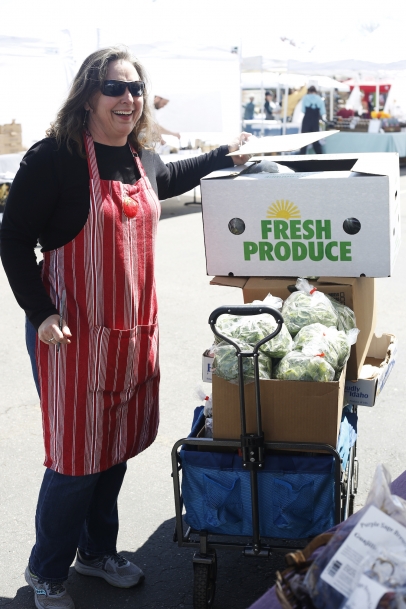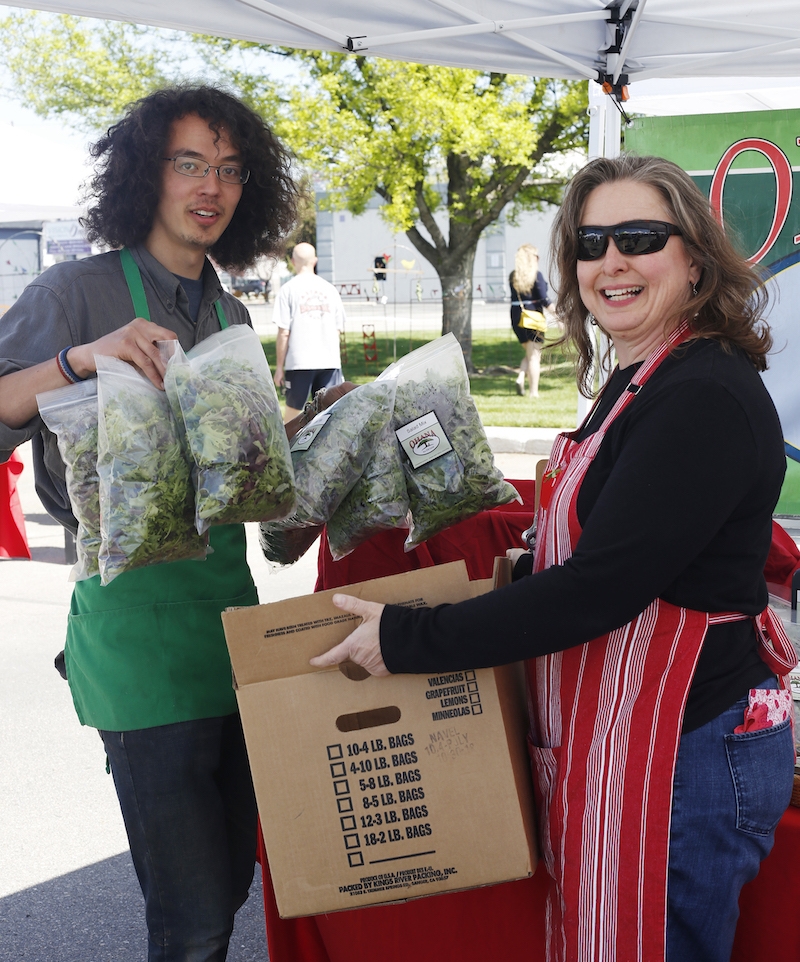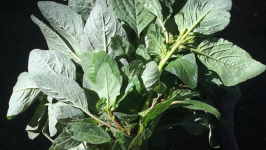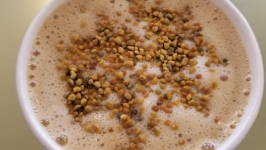Waste Not, Want Not
Julie D’Agostino is a veteran in the uphill battle to reduce wasted food, and though she has poured hours, weeks and years of her life into her food recovery nonprofit, Rolling Tomato, she has plenty of fight left. Just one look at her tired yet still-steely eyes is enough to say so.
“To date, since we started in November 2016, we’ve recovered over five tons of food,” she says. “The total dollar value is over $46,000, and that’s a conservative estimate because at least one of our food donors wishes to not put a retail value, a price, on it.”
By “recovered,” D’Agostino really means “saved from the landfill.” In its year-round operation, Rolling Tomato works to redistribute food that would have otherwise gone into trash bins or compost piles, ferrying excess fresh produce and prepared dishes from the farmers, bakeries and hospitals that produce them to places where they’ll be happily eaten, like Boise homeless shelters, nursing homes and schools. A user interface designer by trade and a longtime food recovery volunteer in California, D’Agostino started Rolling Tomato after moving to Boise and discovering that there was nothing like it. At first, she only picked up extras from the Boise Farmers Market, making the rounds from booth to booth in her signature bright red outfit, but since 2016 the service has expanded. Some pickups—like those from Saint Alphonsus, St. Luke’s and Acme Brea—are regular, while others are one time only.
Rolling Tomato operates on a battlefield that’s often out of sight. Jillien Eijckelhof, founder of the Zero Waste Boise Institute, put the scale of the problem into perspective with a few key statistics: Before Boise’s Curb It residential composting program launched, she says, 17,000 tons of edible food was buried in the Ada County landfill each year, and an analysis from Ada County revealed that food accounted for nearly 16% of the landfill’s total waste. Plus, she adds, Vox reports that food waste is a major generator of greenhouse gases that contribute to climate change, and a University of California study showed that if food waste were a country, it would be the world’s third-largest emitter, just behind the U.S. and China.
“I used to lie awake at night thinking about single-use plastics and technology waste and those kinds of things going to the landfill, but when we started studying food waste we realized it’s a sizable problem with an impact that most people don’t realize,” Eijckelhof says.
Rolling Tomato and similar organizations across the U.S. started putting a dent in that waste. In 2017, Rolling Tomato recovered two tons of food. In 2018, it saved three tons. This year, she and her team of volunteers hope to rescue even more.
“We’re making progress,” she says, smiling.
And they aren’t doing it alone. The Idaho Food Bank is also on the front lines of the food waste war.
“From the last year we provided about 20 million pounds of food out into the community, and of that 37% is fruits or vegetables,” says Food Bank Chief Development Officer Morgan Wilson, noting that of the total 90% is donated, some directly by farmers who have overproduced.
More than a decade ago, the Food Bank started what it calls Food Rescue, a program that recovers unsold produce from grocery stores across the state and redistributes it to food-insecure Idahoans. In 2018 alone, Wilson estimated Food Rescue saved about 6.5 million pounds of food across the state. While keeping good food out of the landfill isn’t the organization’s aim—its ultimate goal is to eliminate hunger across the Gem State—the two outcomes are closely linked.
“Across the country and here in Idaho, we don’t have a shortage of food. We have an access issue,” Wilson says.
Meanwhile, Rolling Tomato works to increase its reach. This year it acquired nonprofit status, which will help it qualify for grants to assist its mission. D’Agostino says the move should bring more recipients to the table, too. Before, she was donating produce exclusively to nonprofits so that donors could collect a tax write-off. Now, they’ll qualify just by passing their produce to the middleman. Next, she hopes to expand to farmers markets in neighboring cities.
“This is just what we should be doing with a really precious resource,” D’Agostino says. “We spend so much time, energy and money growing it, watering it, transporting it, processing it or packaging it— you name it, all of the different steps—and so to throw it out is just ridiculous.”
Rolling Tomato | @gorollingtomato
Boise Farmers Market | @boisefarmersmarket
Saint Alphonsus
St. Luke’s
Zero Waste Boise Institute
Curb It
The Idaho Food Bank










